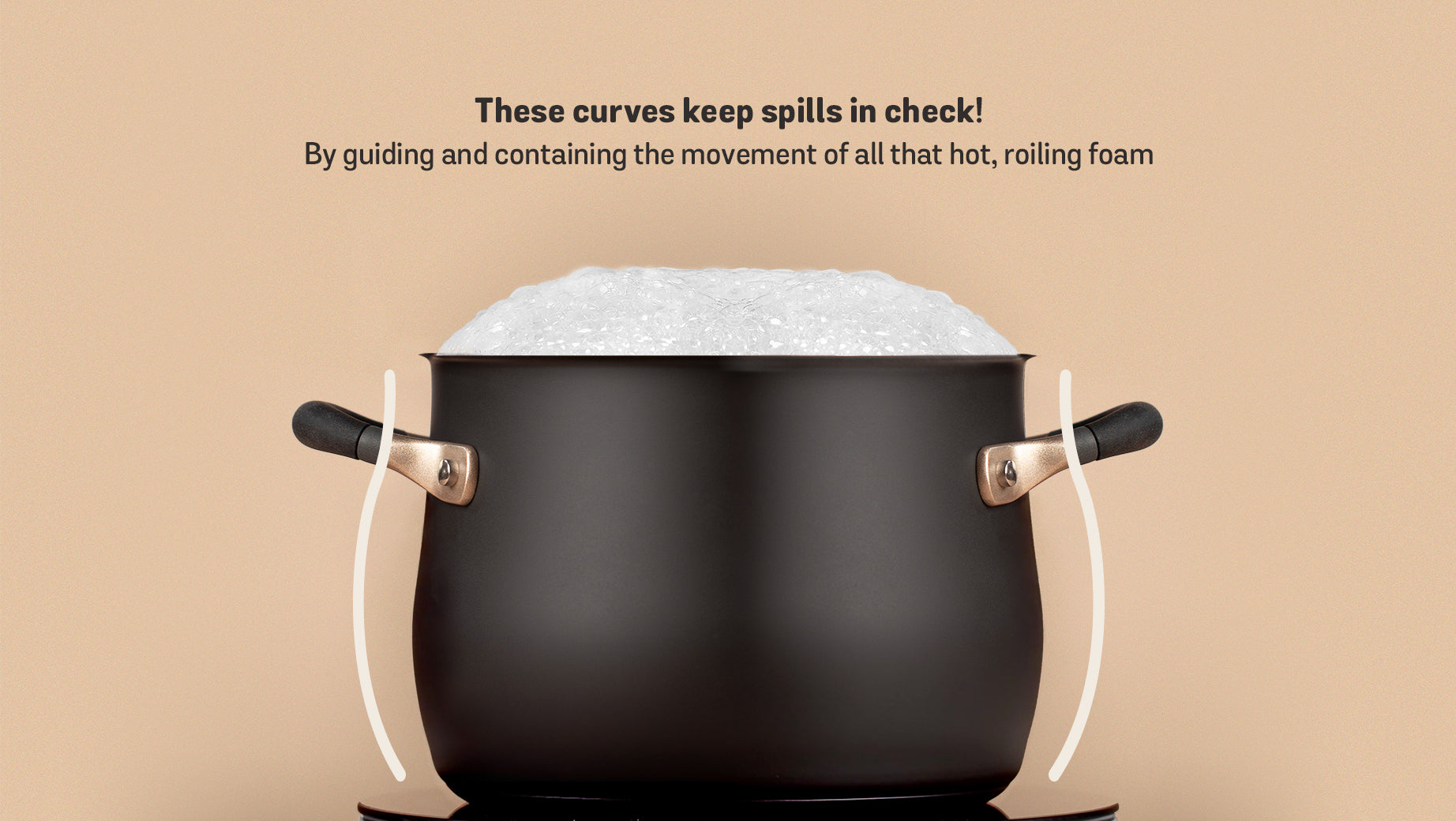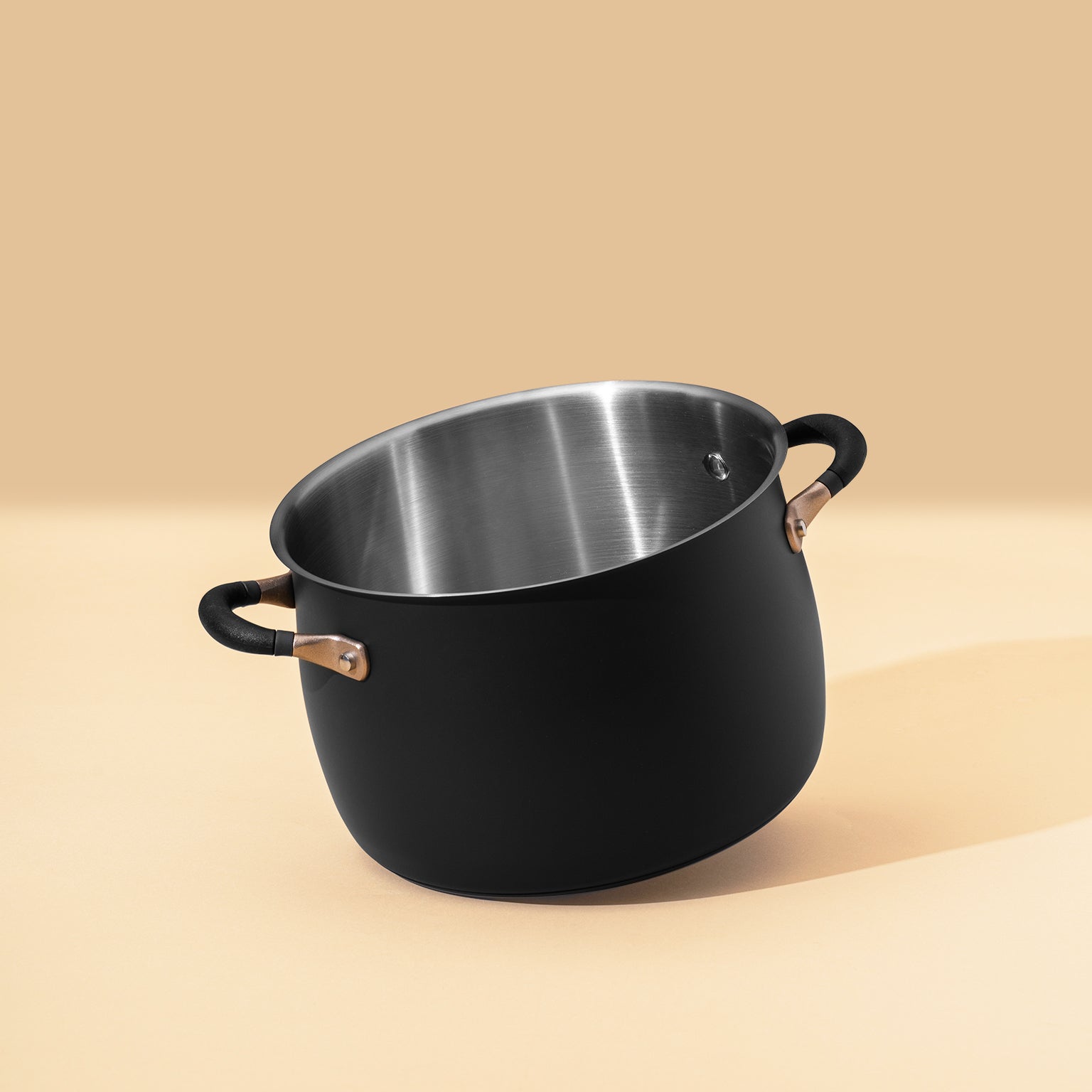No one likes a boilover. One day, as we pondered some of the conundrums we’ve seen people experience while cooking, we had an inkling — How do you prevent boilovers? What if the shape of the pot can help reduce boilovers? Turns out, it can.
Boilovers happen when starchy (or in the case of milk, fatty/proteiny) water generates steam. These particles create a sort of film on the liquid surface, which traps steam bubbles into a clingy, foamy mass that can sometimes boil out of control — especially if the heat is too high.
However, we’ve found that the shape of the pot can help reduce boilovers by guiding and containing the movement of all that hot, roiling foam. Along the way, we’ve also discovered some of the best tips and tricks to reducing boilovers.

Meyer Labs presents:
Our top 4 tips for reducing boilovers
-
Don’t overfill your pot — if possible, don’t fill the pot much more than halfway for starchy or milky foods, and definitely don’t fill it past the rivets.
- Use just enough water to fully immerse the pasta, with enough room for stirring (to prevent sticking).
- More water just takes longer to boil. Ain’t nobody got time!
- Less water also means more gloriously starchy pasta water to use in sauces.
- Don’t use maximum heat — the more heat you use, the more likely boilovers are to happen.
- Don’t use a lid — lids trap even more steam, encouraging boilovers.
- Treat yourself to an Accent Series stockpot — our pots’ clever curves help catch boilovers!
For good measure, here are a few things that we don’t recommend:
- The wooden spoon trick — where you balance a wooden spoon across a cooking pot to prevent a boilover — does not reliably work.
- Salting the water does not help.
- Adding oil to your water can help prevent boilovers, but…
- We tried it — for us, one tablespoon of oil didn’t work, but two tablespoons did for a small stockpot. Larger (wider) stockpots might require even more oil to cover the larger surface area of water.
- However, some people insist that your sauce won’t adequately stick to your pasta afterwards if it is too greasy.
- At the end of the day, we feel that it’s a waste of good oil — if you follow our top tips above, you won’t need to use oil to prevent boilovers.
- Obviously, this won’t help for all dishes, like milky ones.
We know you were bubbling over with excitement for this one. We’ll be back soon for more tips from the test kitchen!
— The Meyer Labs team



